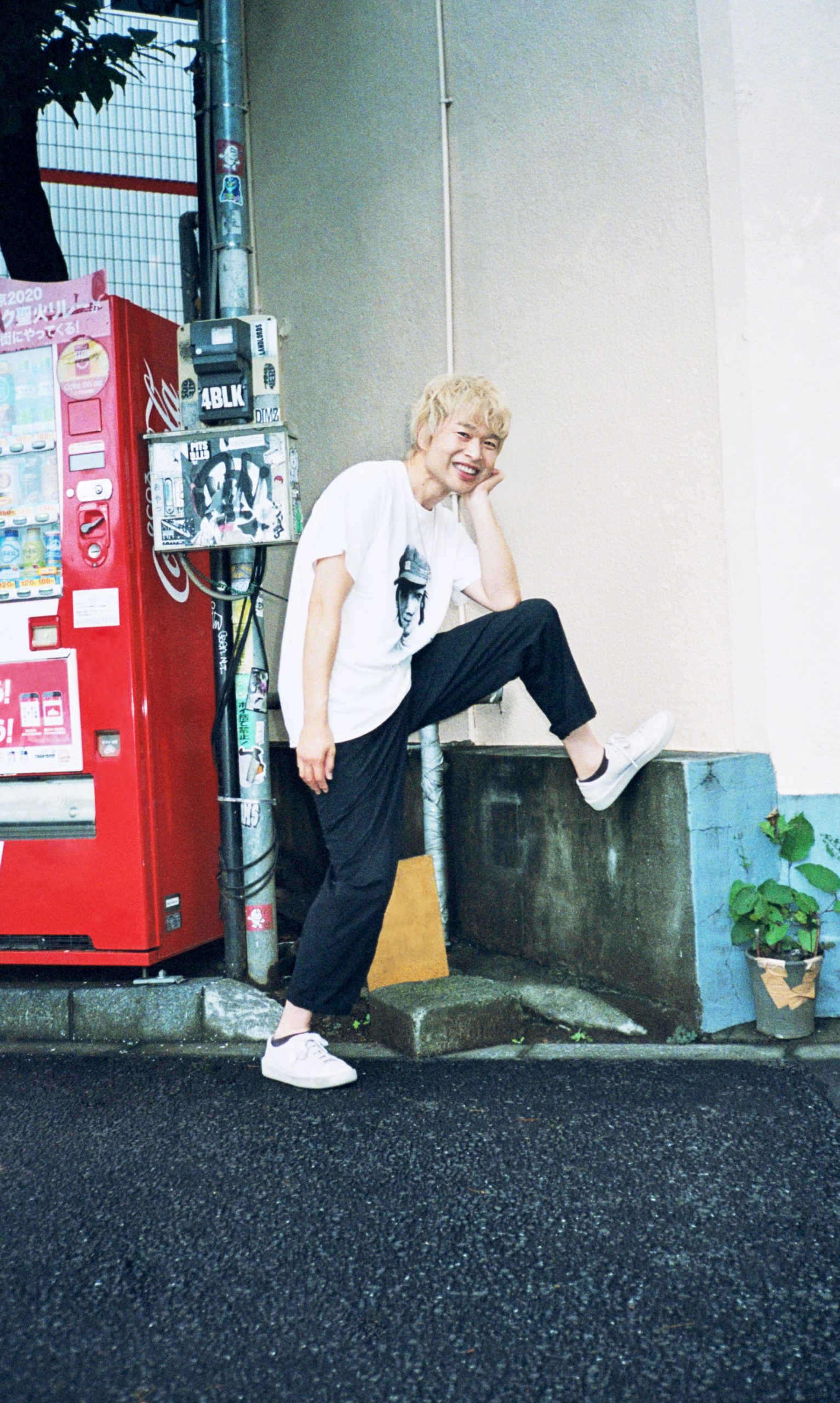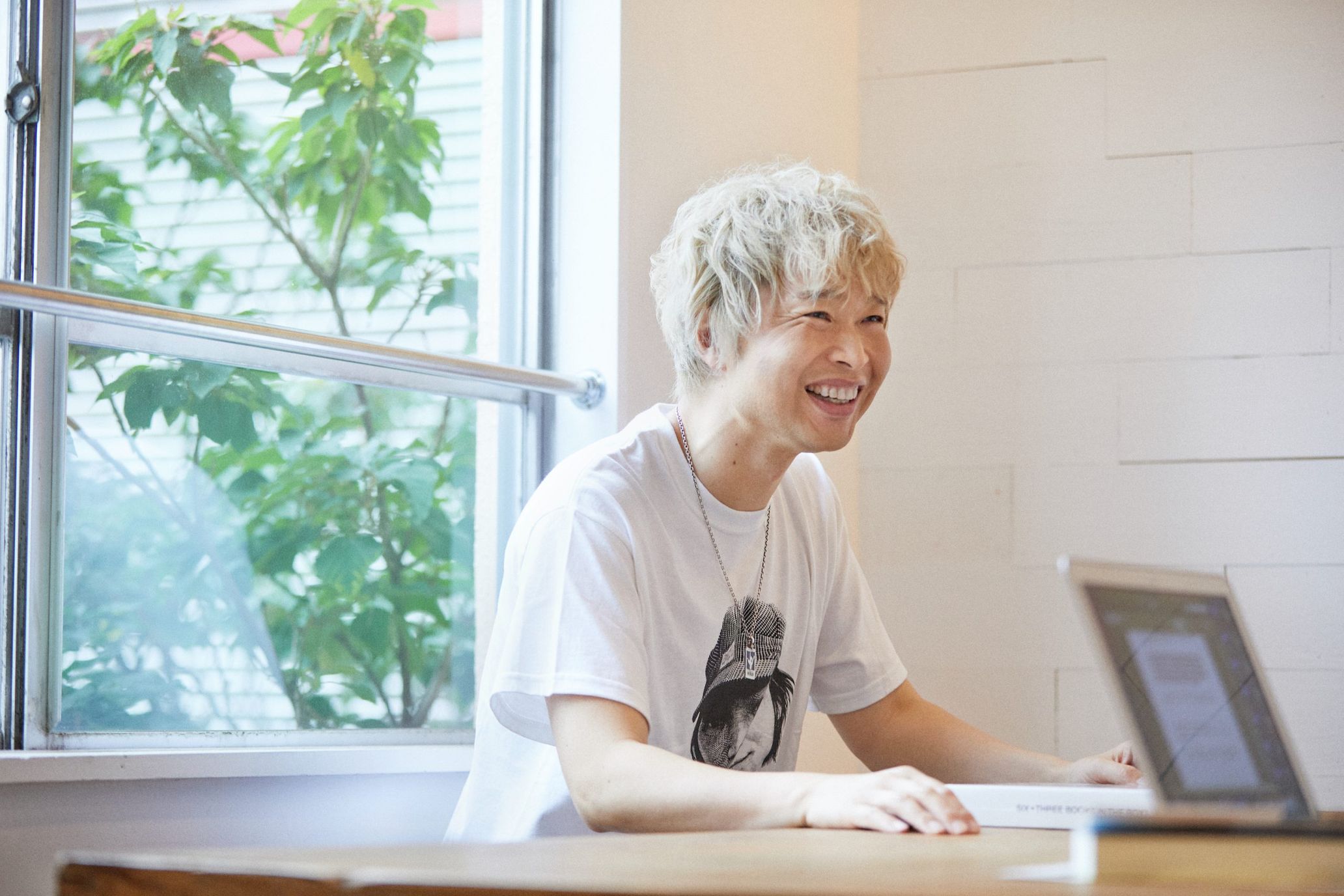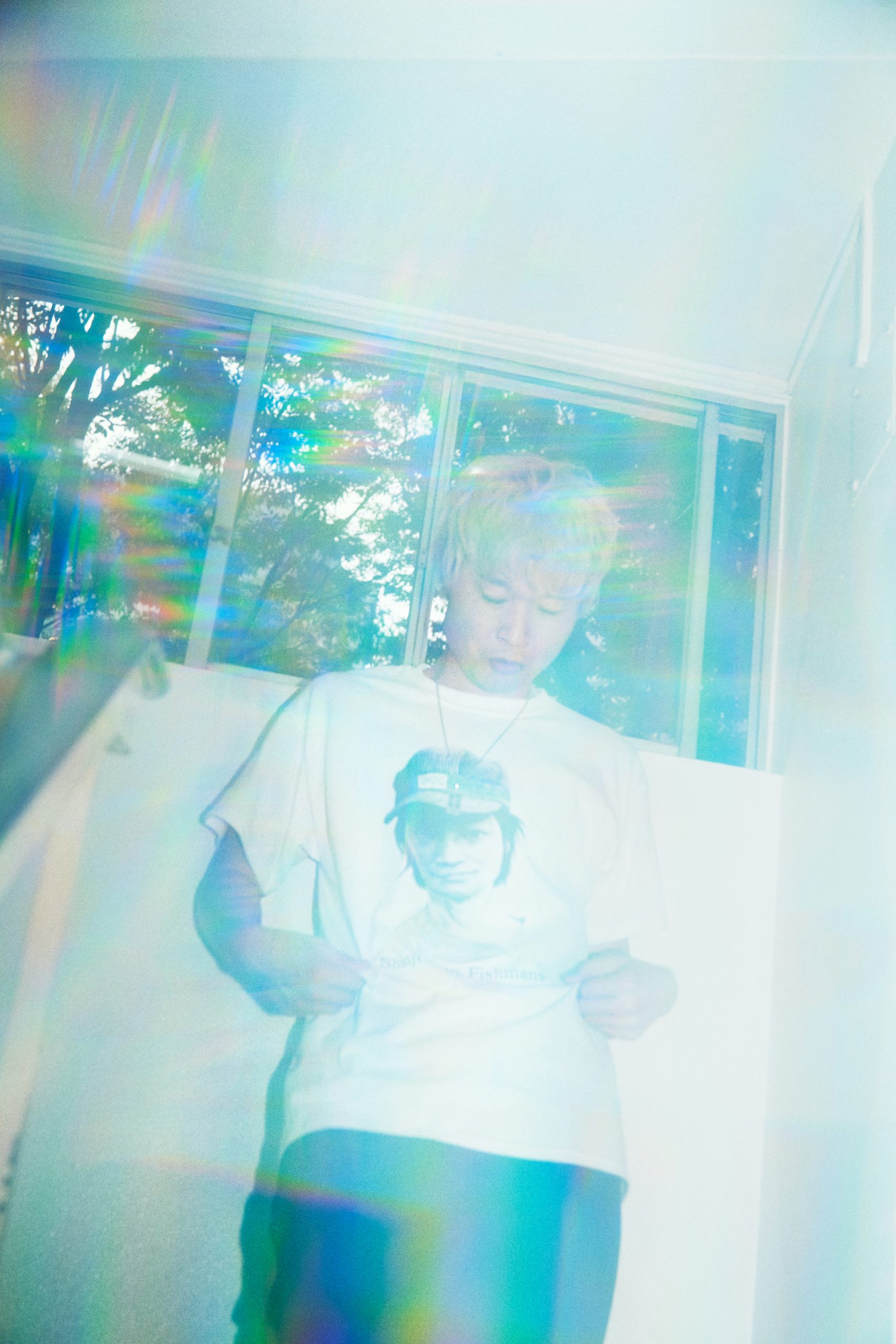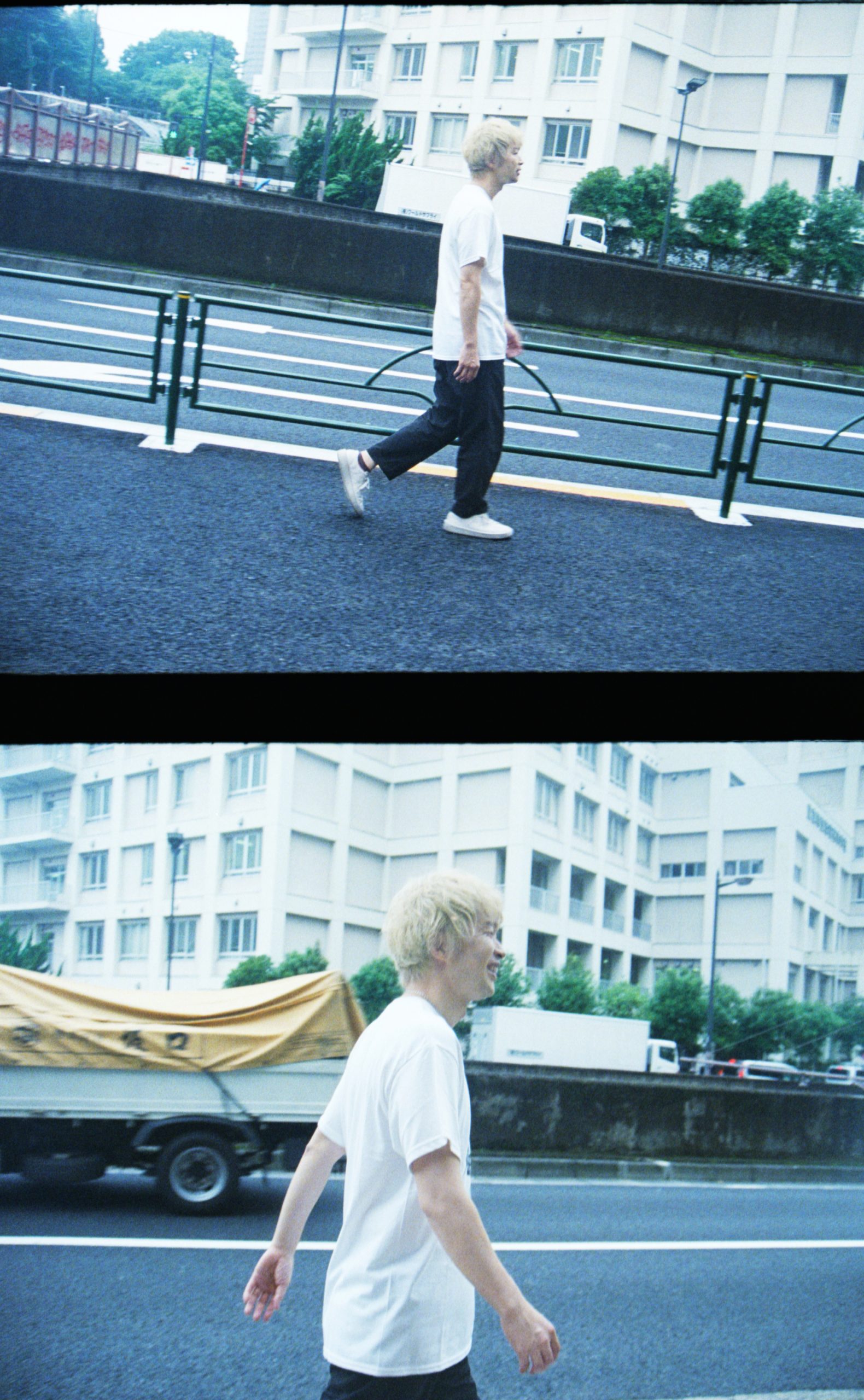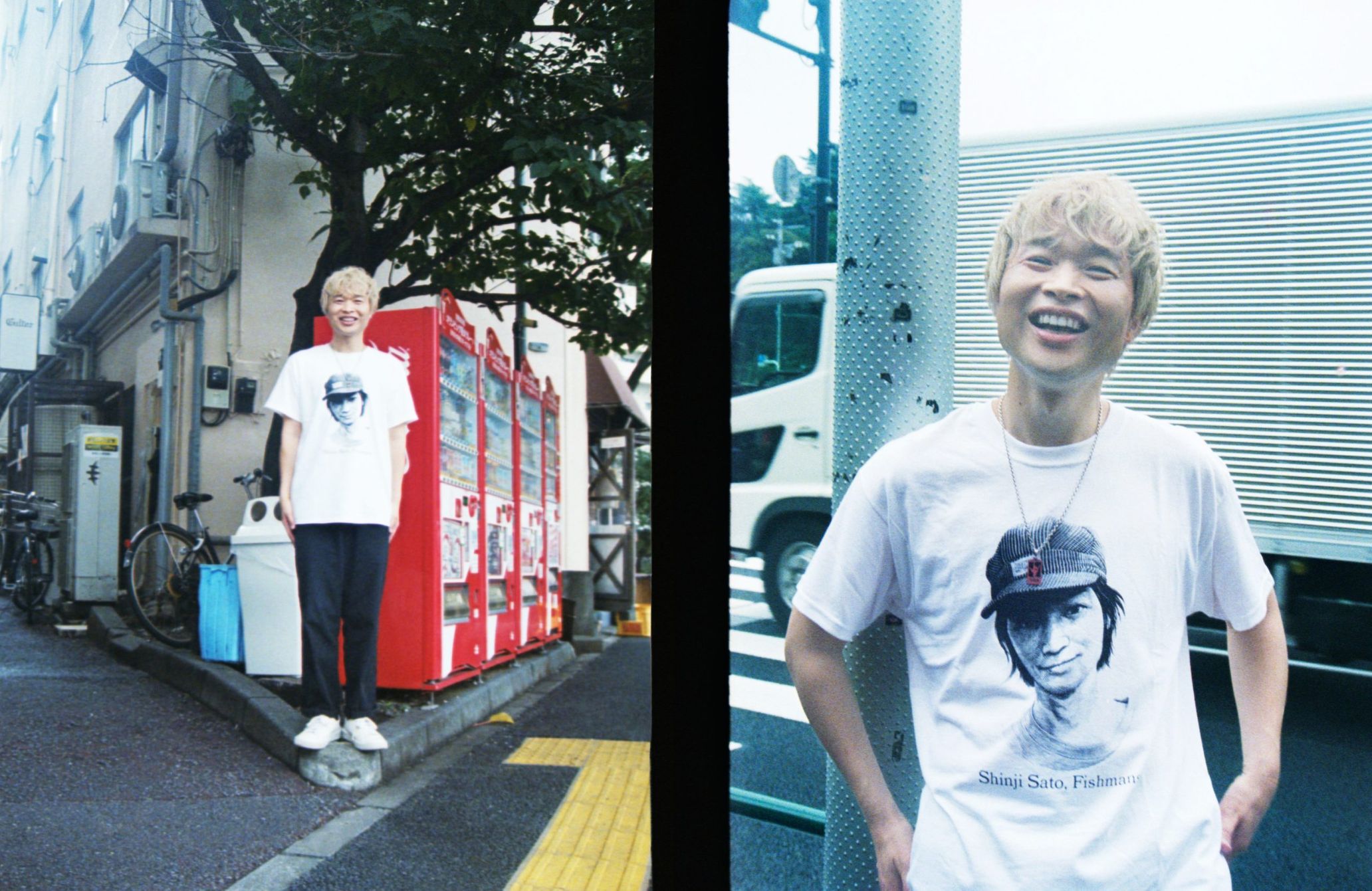Fishmans celebrates its 30th anniversary as a band. Even now, more than 20 years after the sudden death of vocalist Shinji Sato, who formed the basis of their sound and words, their music continues to spread to the world as if going against the flow of time, keeping its energy.
In the middle of this anniversary year where the documentary film “The Movie: Fishmans” and the publications such as “Boku to Sakana no Blues Hyoden Fishmans” and “Bessatsu ele-king Eien no Fishmans” were released, we have conducted an in-depth interview with its founding member/drummer Kin-ichi Motegi. He talked about the world that Fishmans has built through music, and the perspectives for everyday life for us.
The spellbinding sense: “The music will take you somewhere else”
——Mr. Shinji Sato has left the words, “The more you continue to play in the band, the better it gets.” But how do you feel when you hear “30th anniversary”?
Kinichi Motegi: Curiously, it doesn’t feel real yet. However, I only spent about 12 years with Sato-chan. Obviously, the time without him is longer than the time we spent with him. At the age of 23, when we made our debut, I had no idea what would happen 30 years later. But if I think about the situation now, it’s not like no one knows about Fishmans. Rather, the reality is far from it. I feel special about the fact that our music has got more listeners despite our intermittent activity. Anyway, it’s clear that Fishmans’ music has an energy that doesn’t fade over time. So to speak, it wasn’t consumed. It was music that has survived over time. I might be able to proud of it.
——When I listen to Fishmans’ music, it feels like it’s taking me somewhere in the continuum of everyday life that I haven’t noticed. It is by no means an escape, and I feel that it teaches us the mysterious sensations hidden in our lives.
Motegi: I’ve been addicted to the sense of “the music takes me somewhere else” for 30 years. However, I reflect seriously on the fact that I haven’t done anything realistic and I know too little about the world, so sometimes I even worry about myself (laughs). But as a musician, I can’t help being attracted to the music that would take someone away nor having a desire to take someone to different places with music. Even now, music is playing in my head all the time.
——Has that feeling been the same since the formation of Fishmans?
Motegi: It hasn’t changed. I’ve been listening to music all the time, and I was always looking forward to Sato-chan’s new songs. My heart has always been filled with love for every single song. I am very happy that I could meet such favorite music and was a part of his band. Right now, I’m listening back to the recordings from around the time when we debut. There is also a cassette tape that contains a recording of our first live, but Sato-chan was just amazing. At first, he was singing while playing the bass, and our sound was more like punk rock that can be compared to The Jam. But what amazed me was the fact that his singing style and attitude had been firmly established from the beginning. In terms of the song “airplane”, for example, he sang a little quietly, but the energy he put into it and his ability to concentrate on the music haven’t changed. We didn’t intend to do a reggae band ourselves, but the fact that our sound became closer to reggae was a natural development that fits Sato-chan’s singing style and the style of expression of the band.
The inner conflict over the change of rock style drumming that he had been into since his teens
——I think your play style itself has been changing as well, but was that also natural?
Motegi: No, when I was a teenager, I was really into rock music, so I had a conflict over the change of my drumming style. I liked Jimi Hendrix and The Who, and I was a type of a man who was fascinated by the video of a drummer destroying the drums (Laughs). Even so, I think the reason why I shifted my style towards reggae was more than anything else the feeling that I wanted to keep up with this person with an overwhelming talent. I strongly felt that “I want to hone my drum skills for him!”
——So you were intentionally changing your style “for him”, right?
Motegi: That’s right. Since I met a person with such talent, I’ve always really wanted to be a suitable drummer for him. It would be a total joke if the drummer for the band of such a talented songwriter is terrible (laughs). So I was always thinking that I should leave the band if my drumming wasn’t good enough. The other members were very attractive as well. There was a unique combination of the sounds of Ojima(Kensuke)-san, I, and Sato-chan in a trio formation, and when we were joined by (Kashiwabara)Yuzuru, a new and different band sound was built from there. When Hakase joined the band where there had been no keyboard player until then, a new band arrangement was born. Yuzuru and Hakase were good from the beginning, so I and Ojima-san were like “we had to do our best!”. Each and every one of us was making efforts in response to such changes, and each individual was polishing his skill more and more.
——I think that when a person in the band changes, that change will affect the band and make it take a new path like a living thing. Under such circumstances, Fishmans created a private studio “Waikiki Beach-Hawaii Studio”, where the Setagaya trilogy “Kuuchuu Camp”, “LONG SEASON” and “Space Japan Setagaya” were born. What did the changes in the environment bring to the songs and bands?
Motegi: Private studio was a great revolution. For us—especially for Sato-chan, it was a dream come true. We really got a place where we could always do recording as an extension of daily life. Until then, of course, we all went to a big recording studio, and we had been thinking that’s what recording was. However, we were liberated from that and we became able to come to the studio anytime with nothing other than what we wore.
——You think it was liberation, right?
Motegi: Yeah, when we were using a big studio, there were a lot of people around us, and we had a lot of things to worry about besides music. The less such things we had, the better Fishmans became. Sato-chan used to go to the studio by himself from his house in Shimokitazawa to sing alone. I think it was pretty good for him to be able to do what he came up with in his room without worrying about anyone else.
For example, if “BABY BLUE” was recorded in the other recording studio, I am sure it was impossible for him to sing in that way. I don’t know exactly how he recorded it, but he probably sang pensively into the microphone while lying on his elbows. I think he was able to record that kind of ephemeral feeling and singing style precisely because he was in a private studio. As for me, nobody complained even if I was playing the drums until dawn. In terms of “Kuuchuu Camp”, even if I did more than twenty takes for “night cruising”, it was not painful at all. Rather, I felt like “Oh, this song has completely sunk into my body” in the middle of the night.
Fishmans’ music is so real
——In the documentary film, Ojima-san recalled when the band made its debut, saying, “We were not very good at playing, but the world we built was good.” What do you think was the world that Fishmans was building in the midst of changing environments, as you just mentioned?
Motegi: I think it’s like putting a part of everyday life into music. Fishmans music never draw conclusions, nor does it seek conclusions. A part of a certain life is cut out, and it continues endlessly. It’s both kindness and rigor. Of course, Sato-chan’s songs form a foundation of our sounds, but I think the world of Fishmans is an expression through music of the feeling of walking every day.
——I imagine that continuous creation and playing of such sounds must have changed the way you sees your daily life as well. What do you think?
Motegi: Yeah, you’re right. I realized that everyday life is the most dramatic. The greatest treasure for me is the feeling of joy, sadness, and indescribable emotion when the sun is about to set. I think my own perspective on finding or not finding trivial things in everyday life changed through the encounter with Fishmans music. Therefore, it became very important for me not only to feel “happy” but also to maintain the feeling of “loneliness” .
——There are moments when the gradation of emotions that cannot be clearly expressed seems very twinkling. I thought the idea of “everyday life is the most dramatic” is exactly that.
Motegi: Yes, the trivial things are the most moving. That’s why I feel happy and sad, then I have my life that continues. Our works are such a real music that says, “that’s how it is”. I think that people who listened to “MELODY” will probably sympathize with the lyric: “let me dream for another two hours” because this expresses indescribable feeling that many people have in their mind. However, the degree of “understanding” is also different for each listener. I think that’s what makes Fishmans music so appealing. Such words always tickle my heart.
——Such a feeling is something we tend to forget, and also the atmosphere of world today is different from the one in 30 years ago, but this emotional feeling is very universal. I think it’s something that humans can feel, regardless of nationality, age, or gender.
Motegi: That’s right. I’m wondering why people from overseas are listening to Fishmans a lot now. For example, I think that the reason why “LONG SEASON” is well accepted by listeners outside of Japan is that even if they don’t understand the lyrics, they can definitely feel the atmosphere. The songs made by Sato-chan speak to the hearts of people of all ages, transcending time and place, and move them. I myself continue to be moved. I think that something that moves people’s heart is the art of Fishmans.
The scenery expressed through drum solo and responsibility for making one sound
——I think it’s difficult to give one sound a common recognized meaning like a language, but the sound of Fishmans seems to have a will in each sound, and the whole song successfully gives a form to something that can’t be expressed in words.
Motegi: That’s right. As for the base guitar of Yuzuru, it feels like a strong will that won’t collapse under any circumstances, and in terms of HONZI’s violin, it’s like the feeling of being exposed to the sun. The written lyrics are not the only message in a song, but each sound with no words definitely has emotions.
In my case, in terms of Fishmans songs, the importance of making sounds had increased over time. For example, at the exquisite moment of changing the mood of song, I hit the cymbal only once. The sound of the cymbal at the moment of the song’s peak has a great influence. The responsibility for such a single sound has changed steadily. “LONG SEASON” has quite a lot of such sounds. At the very end, I had a quite long fill and hit cymbals and gongs in rapid succession … Oh, that reminds me a lot of things!
–What do you remember?
Motegi: For the drum solo of “LONG SEASON”, I tried to convert what came to my mind into sound as much as possible. The theme of my solo was “fireworks I saw during a summer vacation.” In response to the lyric: “What do you remember?”, I answered with the drum solo, “I remember the fireworks exploded by the sea that I saw at that day.” Even though I didn’t share any images in particular, and of course Sato-chan had some kind of sound drawings, each member must have had a canvas. I think the spread of imagination created by these multiple canvases was very interesting.
Misunderstanding gave birth to the individuality of Fishmans
——I wondered if tendency of enjoying such a pre-established discord is connected to the emotionally evocative sounds, as you mentioned earlier.
Motegi: At first, I am sure Sato-chan made quite a lot of requests. But from a certain point, I felt like he started to let everybody else go. As for pre-established discord, when you listen to recent music, you can easily imagine musical notes on the screen. At the time of our time, there was little information, so we were making our music as if groping our way forward, sometimes misunderstanding something. But even if it was a mistake, it would be correct if it eventually became our own personality.
So, I and Yuzuru were making sounds together while discussing endlessly about what we should do to make this and that kind of sound, which ended up with interesting but chaotic sounds. (Laughs). That kind of analog process is surely connected to the important part of Fishmans. However, young people today have a lot of information that they can access, and they can watch videos on YouTube, so it may not be possible for them to misunderstand something.
—— Certainly, not only the music scene but also the society has been becoming more and more intolerant toward sense of ambiguity and misunderstanding.
Motegi: Today, people might feel uncomfortable if the vertical lines aren’t exactly aligned in the ensemble. That’s why I want to talk with the younger generation of musicians about where their aesthetics are. If you look at the wavelength of sounds from Fishmans’ recording, it’s definitely random. But from my point of view, that’s exactly the fluctuation of the band sounds that other people don’t have, and that’s why our band is called “Fishmans” isn’t it? That’s what I’ve been thinking for a long time.
Kinichi Motegi
Born in Tokyo in 1967. His nickname is “Kin-chan”. In 1987, while attending Meiji Gakuin University, he formed Fishmans with members of the music club of the university: Shinji Sato and Kensuke Ojima. The band made its major debut in 1991. After the Sato’s sudden death in 1999, the band has been tentatively continuing its activities with guest vocals after its temporal suspension. In 2001, he joined the Tokyo Ska Paradise Orchestra, which he had a close relationship with. Since then, he has been widely active in bands such as So many tears, as well as participating in the other artist works. In 2021, which marked the 30th anniversary of the band’s debut, the documentary film: “Movie: Fishmans” and books such as “Boku to Sakana no Blues Hyoden Fishmans” (East Press) and “Bessatsu ele-king Eien no Fishmans” (P-Vine) were released.
■ Movie: Fishmans
Time: 172 minutes
Official site: fishmans-movie.com
■ Boku to Sakana no Blues Hyoden Fishmans
Price: ¥ 2,310
Number of pages: 456 pages
Publisher: East Press
■ Bessatsu ele-king Eien no Fishmans
Price: ¥ 1,870
Number of pages: 192 pages
Publisher: P-Vine
■ Long season expanded version
Price: ¥ 2,365
Number of pages: 208 pages
Publisher: Kawade Shobo Shinsha
Photography Rie Amano
Hair & Make up Chiaki Tsuda
Edit Jun Ashizawa(TOKION)
Special Thanks Kosuke Maruo
Cooperation Shinjuku Dialogue

